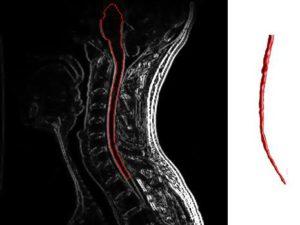Multiple Sclerosis (MS) is a condition which affects the central nervous system. Researchers from Stanford University School of Medicine have now found a link between the gut microbiome and the severity of MS. These data suggest that certain bacteria are more likely to exacerbate the condition by causing a pro-inflammatory T cell response.
Gut microbiome dysfunction has been linked to many conditions as the gut microbiome has been shown to regulate immune responses. Differences have been observed in the composition of the gut microbiota between people with MS and those without the condition. A mouse model of MS showed that the gut microbiome is capable of regulating immune responses to MS. Th1 and Th17 made MS symptoms worse in these mice while Tregs modulated the symptoms. These data led the researchers to investigate the role of the gut microbiome on the progression and pathogenesis of MS.
The researchers obtained peripheral blood mononuclear cells (PBMCs) from individuals with MS and controls without and stimulated these cells with “self” bacterial extracts from matched stool samples. They did this to investigate whether gut bacteria from MS patients affect the functioning of the immune response. The researchers found that the PBMCs of MS patients were unable to efficiently differentiate or expand Treg populations.
The researchers then sequenced 16s ribosomal RNA from 71 MS patients and 71 controls to identify the bacterial colonies in the guts of these individuals. Levels of individual microbial taxa varied significantly between the two groups. Akkermansia muciniphila and Acinetobacter calcoaceticus bacteria were at higher levels in MS patients. These bacteria induced pro-inflammatory responses in both PBMCs and a mouse model. Parabacteroides distasonis bacterium was at a lower level in MS patients and was found to induce anti-inflammatory responses. When microbes from MS patients were transplanted into germ-free mice, the mice had lower proportions of Tregs compared to control mice.
In summary, this study shows that specific gut microbiota are associated with pro-inflammatory T cell responses which may exacerbate MS. This study highlights a previously unknown contributor to the pathogenesis of the condition.
Journal article: Cekanaviciute et al., 2017. Gut bacteria from multiple sclerosis patients modulate human T cells and exacerbate symptoms in mouse models. PNAS
Article by Thandeka Moyo












